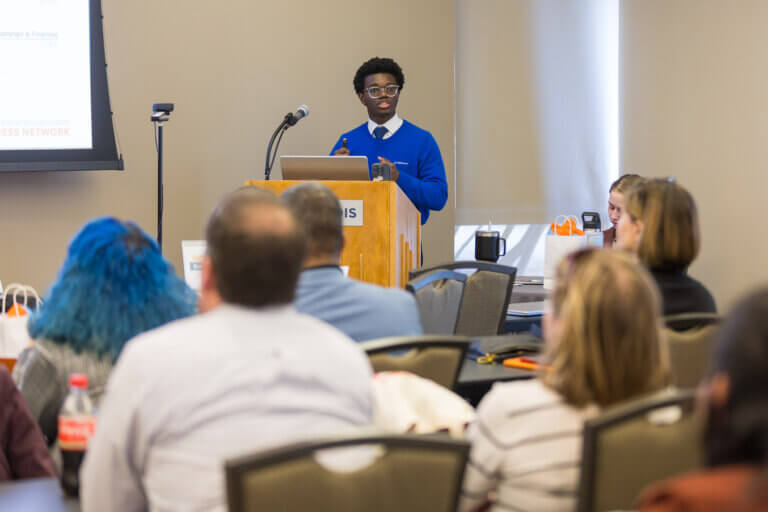On March 8, Governor Pritzker signed into law HB 2170, also known as the Education Omnibus Bill (Public Act 101-0654), which the Illinois Legislative Black Caucus championed with leadership from their Chair and Senate Majority Leader Kimberly A. Lightford. The Education Omnibus Bill results in sweeping changes to Illinois’ P-20 education and workforce systems, spanning from home visiting programs serving Illinois’ youngest children to expectations for community colleges and universities. Included in HB 2170 were a number of provisions of note that we are celebrating at EdSystems, as they continue to advance the vision of racial equity and aligned policies to drive college and career success that we have been championing since our inception.
Affirming a Vision for an Equitable Recovery
Due to COVID-related shifts and long-standing systemic inequities, Illinois faces extensive challenges to making good on its promise of delivering high-quality, accessible education and training that prepares all Illinoisans for college, career, and life. In the face of these challenges, HB 2170 includes several provisions to address issues throughout the P-20 pipeline with an eye toward equity.
First, Article 70 affirms the role of the Illinois P-20 Council in aligning and affirming P-20 system-wide efforts to support student success. To that end, it requires the P-20 Council to provide short- and long-term recommendations for COVID-19 learning recovery. These recommendations must address topics including assessing the digital divide, evaluating academic growth and proficiency, a robust set of expectations for data review across the P-20 system, resources for learning recovery, social-emotional learning and mental health needs, trauma-responsive and restorative practices, and strengthening the secondary-to-postsecondary transition point.
Article 95 (“Equity in Higher Education Act”) emphasizes the moral and economic imperative for closing equity gaps in our higher education system, including access, completion, and attainment. This article affirms the need for the P-20 Council to update the state’s 60% by 2025 goal to embed equity goals, which is already underway with our support through the College and Career Readiness Committee. Ultimately, we believe these goals must be tied to the Strategic Plan for Higher Education currently in development by IBHE and ICCB.
Article 150 requires a feasibility study for consolidating all workforce development programs funded by the federal Workforce Innovation and Opportunity Act (WIOA) into a single state agency, in contrast to the current approach, which involves several agencies responsible for the various WIOA titles. This feasibility study aims to ensure that youth and adults seeking WIOA-funded education and training have easy access to high-quality programming that aligns with their needs. Our system currently operates in a fragmented manner. While the State of Illinois has embarked on numerous efforts to ensure better alignment, including those advanced by the Pro Path Illinois effort, there is much room to grow to ensure an accessible and navigable system for Illinoisans of all backgrounds.
These systemic efforts must be grounded in quality data showing where our pipelines are leaking and enabling us to continuously monitor progress toward our state’s goals. Article 20 (Data Governance and Organization to Support Equity and Racial Justice Act) states, “Historical equity gaps exist in the administration of programs across the state, and understanding where these exist is necessary for adjusting program scopes and ensuring that gaps can be found and rectified quickly.” To that end, Article 20 contains provisions aimed at enhancing work around the Illinois Longitudinal Data System (ILDS) to increase the availability of participant-level data. Those data can then be integrated and disaggregated across our diverse data systems and pushed out through tools like the Illinois Postsecondary Profiles site. These provisions will help address a critical challenge we see in our state- and community-level work: differences in definitions and data management efforts produce fragmented data that limits use for continuous improvement purposes. Critically, the article requires enhanced data disaggregation, enabling a deeper understanding of how Illinoisans experience our education and workforce systems. We will also better understand where there are valuable opportunities to close opportunity gaps in service of equitable outcomes. As articulated in our own commitment to Advancing Racial Equity, these disaggregated data provide essential diagnostic and monitoring tools.
HB 2170 Enhances College and Career Pathways
Several provisions in HB2170 support enhancing College and Career Pathways with an increased emphasis on strategic early college credit that can accelerate students into postsecondary success.
Article 65 requires secondary districts to ensure their accelerated placement policy includes provisions for automatic enrollment into the next most rigorous level of advanced coursework offered, including early college credit courses (dual credit, AP, IB). This automatic enrollment approach can help address the ongoing challenge of ensuring equitable access to early college credit courses, which can be shaped by advising policies and a lack of information for students about the opportunities in their schools. These provisions send a clear message: all students, regardless of background, should be advanced based on skill level into the courses that will most accelerate their skill-building. We are excited to see how districts rise to meet this challenge and how this policy will help mend some of the leaks in our P-20 pipeline, particularly for students who have not historically entered into advanced coursework at the same rates as their peers.
Article 60 contains provisions to require computer science coursework and computer literacy skill development. In a society where technological skills become increasingly essential, we are excited to see the state emphasize integrating these skills into expectations for all students. We also see this new graduation requirement as an opportunity to build from existing work, including our Model Program of Study in Information Technology, which provides a valuable framework for integrating computer literacy skills and computer science courses in a thoughtful college and career pathway.
As we will describe further below, HB 2170 contains provisions directly tied to our Scaling Education Pathways in Illinois (SEPI) initiative, particularly by linking education pathway completion to eligibility for the Minority Teachers of Illinois (MTI) scholarship program. We view education pathways as one of the most critical areas for attention in Illinois and are excited to see how the work we have done in supporting SEPI and the Illinois Model Program of Study Guide in Education can provide communities statewide with frameworks they can use to enhance their own college and career pathway systems.
Strengthening Bridges to Postsecondary
As we have emphasized in our work on transitional instruction and dual credit, addressing the ongoing challenge of developmental education and ensuring equitable access to strategic early college credit are two critical issues in bridging secondary and postsecondary education opportunities for Illinois students.
Article 100 (Developmental Education Reform Act) contains key provisions aimed at building from recent efforts for improving student placement into and models for delivering developmental education. The goal is to ensure students gain the skills they need for postsecondary success and stay the course through their chosen postsecondary pathway. To that end, the article directs all community colleges to adopt the recommended Multiple Measures Placement policy put forth by the Illinois Council of Community College Presidents (ICCCP) in 2018. While many community colleges have implemented this to some degree, requiring full implementation and publicizing of current placement policies of community colleges will drive greater consistency and transparency for students to navigate the system. Multiple measures placement is a thoughtful and equitable approach to assessing readiness because it recognizes that no single point-in-time test score or course grade can represent the full breadth of a student’s readiness. These recommendations include successful completion of a transitional course as a valid placement measure, which affirms the value of the transitional instruction framework we have been supporting for several years (including the recent state adoption of transitional English competencies and policies). The article further requires the Illinois Board of Higher Education to convene stakeholders to consider a similar framework for the state’s public universities beginning December 2021. Finally, the article advances work initially explored through the SJR 41 Task Force, requiring institutional plans for scaling innovative developmental education reforms and models. Together, these provisions mean two key things for Illinois students: (1) they will be placed into developmental education only if they truly need it, and (2) if they need developmental education, the model they experience will be right-sized to their skill development needs to accelerate into credit-bearing coursework as quickly as possible.
Further, Article 50 advances more equitable access to Illinois’ postsecondary institutions by requiring a review of course expectations for admissions and the subsequent requirement that secondary districts find a way to offer that course if they are not already, including through partnerships with other secondary districts or through a dual credit course in accordance with the Dual Credit Quality Act. Particularly notable, the public review of admissions requirements will include requirements for particular academic majors, departments, or colleges within the university. With this newly compiled information, we hope that the state can consider ways to integrate lessons learned through the transitional math policy development process, particularly the need to distinguish between relevant math courses by pathway tied to a student’s postsecondary goals.
Augmenting Teacher Pipeline Efforts
Article 130 (Transitions in Education Act), as mentioned briefly above, focuses on the challenges facing our teacher pipeline in Illinois. HB 2170 builds from the success of initiatives, including the Scaling Education Pathways in Illinois (SEPI) and our Illinois Model Program of Study Guide in Education, which seek to enhance the teacher pipeline while ensuring that our educator workforce is representative of the state’s diversity.
First, HB 2170 encourages IBHE, ISBE, and ICCB to form a joint task force for a Major Panel in Education that can ultimately result in an Illinois Articulation Initiative (IAI) Education Pathway that provides a clear path to and through postsecondary programs, preparing students to become the teachers of tomorrow. Our Model Program of Study Guide in Education provides a valuable framework to support this effort. Its course progression recommendations, including strategic early college credit, are based on extensive research into existing postsecondary programs, and its course competencies can serve as the foundation for the IAI committee. We recommend the state consider the strategic dual credit courses identified in the guide (Introduction to Education and Diversity in Education) for the IAI in any education pathway, as they open the door to the most postsecondary opportunities.
In addition to the IAI provisions, HB 2170 improves the accessibility and affordability of education pathways, particularly for students of color. The act increases the Minority Teachers of Illinois (MTI) Scholarship amount from $5,000 to $7,500 annually. Further, starting in FY 2023, high school graduates with a College and Career Pathway Endorsement in any area will be eligible for MTI funding before official enrollment in a teacher prep program. We are excited to see another example of currency for CCPE in our state’s postsecondary education system and are eager to continue building the teacher pipeline with an eye toward diversity and equity.





